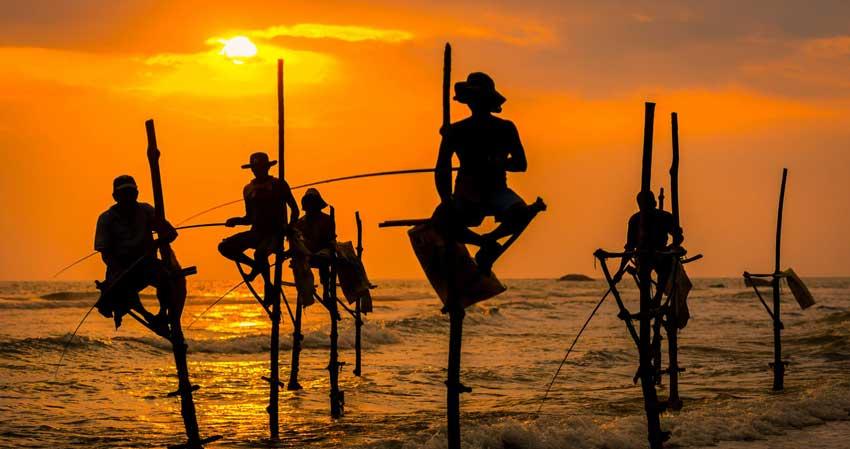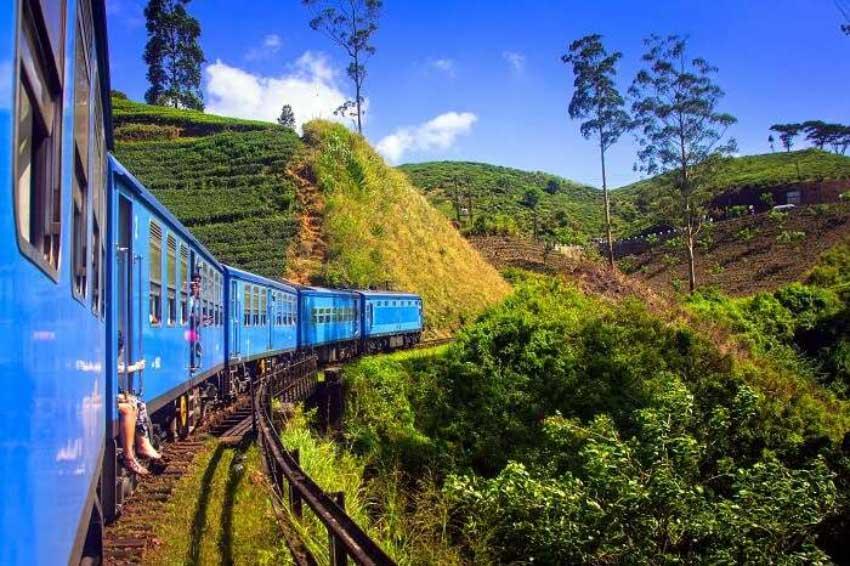Reply To:
Name - Reply Comment

 Sri Lanka is facing a crippling economic crisis (it’s obvious, I know), but we as citizens need to take responsibility and work towards reviving our economy, instead of constantly over-consuming and sharing negative news and living with a mystical hope that things will somehow, one day soon, return to “normal” with changes in political leadership and systems. Yes, the political crisis is horrendous, and we need to work on making our “leaders” accountable for their decisions, but this won’t happen overnight, and don’t for a second think that it’s the sole cause of our problems.
Sri Lanka is facing a crippling economic crisis (it’s obvious, I know), but we as citizens need to take responsibility and work towards reviving our economy, instead of constantly over-consuming and sharing negative news and living with a mystical hope that things will somehow, one day soon, return to “normal” with changes in political leadership and systems. Yes, the political crisis is horrendous, and we need to work on making our “leaders” accountable for their decisions, but this won’t happen overnight, and don’t for a second think that it’s the sole cause of our problems.
I’ve been lucky enough to meet and get to know a lot of influential people in Sri Lankan society. To this day, I have not met anyone who has the same genuine love and concern that my father has for this country. He always leads by example, and I am, and will forever be, immensely proud to be his son. Whenever we are faced with adversity, he somehow inspires us to keep fighting and forge ahead. He has done this over and over again for all our associates at Jetwing (and personally, throughout my entire life), but I think it’s time to spread his current message with everyone. This is not for any personal gain or for the sake of any individual, company, or party. This is for all those who love Sri Lanka and want to see it one day as it should be - the most beautiful and prosperous country in the world.
Today, we are faced with an unprecedented challenge, and the only way out of it is for the 22 million citizens of this beautiful country to work together. The need of the hour is to reduce consumption; more specifically, the consumption of non-essential imported items. According to the Central Bank Governor, Dr. Nandalal Weerasinghe, Sri Lanka’s imports currently amount to US$1.5 billion a month. Our exports are slightly over a billion dollars, with massive shortfalls in income from remittances and tourism. As is evident, despite the many import restrictions, Sri Lanka still faces a balance of payment shortfall of roughly $500 million a month. This is not sustainable, and the “easy solution” of getting additional funding to bridge the gap will only prolong the agony and create a worse situation in the future. Simply put, we need to earn more and spend less; and yes, this means that we all need to make a few sacrifices and adapt in order to help our nation during this time. Here’s five ways in which we can all help:

(1) More than 1/3 of the money spent on imports is used to bring fuel to the country. While it is agonising to stay in queues for long hours to get whatever fuel we can, we need to realise how much we are paying for this today. 16 litres or 20 litres, whatever each week’s quota will be, the price of fuel is currently not affordable or sustainable (without considering black market prices). Over consumption of fuel is a big issue, and we need to adjust our lifestyles so that whatever available fuel can be used for essential services and industries that bring in foreign exchange to the country (you’ll also be helping the planet by reducing your dependence on fossil fuels). At Jetwing, we took a decision to temporarily suspend the use of private vehicles for any official long-distance travel. We will be using public transport; trains and buses, to ensure that the fuel we consume by travelling on work is shared with hundreds of other passengers.
Yes, our buses and trains may not be the best in the world, but the networks are very good, and it serves the purpose. You also get to see a different side of the country, be exposed to breath-taking views, and witness first-hand the warmth of our people - and, seriously, there is no reason at all to feel ashamed.
(2) Did you know that over $300 million is spent every year on importing apples, oranges, and grapes? We travel quite a lot, and something that always amuses me is that most road-side fruit stalls around the country have more imported fruits than our own fruits. We are a tropical island that is blessed with so many varieties of native and introduced fruits, why don’t we consume them? And for those in tourism, why don’t we proudly promote these to our guests? Nobody comes all the way to Sri Lanka expecting to eat the same things they do in their own country. For those of us living here, we may have to sacrifice a few of the food items we used to enjoy eating, but the compounded impact of you deciding to stop purchasing those items is tremendous. Again, the less you consume these imported fruits and other non-essential food items, the more foreign exchange we will save to purchase essential medicine, food, and the required amount of fuel for energy and essential transportation. We stopped serving imported fruits, vegetables, and seafood over eight years ago, as it was the right thing to do from a sustainability perspective and because we wanted to showcase the best of our own Sri Lankan produce to travellers. Now, we are going a few steps ahead of that by working towards eliminating all imported food items wherever feasible, including oils, sauces, pastes, sugar, etc.
(3) Our country has provided us with free healthcare, free education, and a countless number of subsidised goods and services. While this may also have led to our economic decline due to unsustainable fiscal policies, we should be grateful that we did receive these benefits throughout our lives. With all that we have received, it’s sad to see that many people have stopped using the banking system to bring in the money they earn overseas. Earning a few extra rupees per dollar may be a significant boost to your personal finances, but this also means that the money you send is not recognised and cannot be utilised for purchasing essentials. It’s a two-way street. Don’t only accuse others, but think of your own life, friends, and family, and consider foregoing that extra income for the sake of the country. It may be your own parents or grandparents that need medication that is currently unavailable, so do your part and send in money through the banking system so that our country will be able to afford those essential items.
(4) Some predict a food shortage in Sri Lanka and around the world. There is a strong likelihood of this happening, and not just for imported food items. It’s someone else’s problem, right? There’s nothing you can do about it? Wrong. You can make a world of a difference by starting a simple home garden in whatever capacity that works for you. Whether it’s fruits or vegetables, or even a small mung atta (green gram) plant like we had to do in school, every edible item that is grown will help us avoid a food crisis. And for us Sri Lankans, this is not a big problem, as our soil is rich in nutrients and can produce higher yields. So, start as soon as you can, and use any unutilised land to grow something edible!
(5) Let’s face it. We are all going through a hard time, whether it’s our businesses or personal lives. And it seems like there’s no end to this madness, both political and economic. When will we get back to normal? Who knows? But it’s important to remain positive! Have hope, have faith, this is not the end.
Don’t give up on Sri Lanka. This is the time for us to step up and do whatever we can to contribute to the future welfare of our people. Don’t expect this message to come from those hoping to win elections, as it’s not another false promise, but a rather bitter pill to swallow. This is my country, and yours, and there’s honestly no better place on this planet. So, let’s not depend on a few people to magically make things better for us; let’s all do our part, weather this storm, and get our country back on track! Remember that no action is too small, and if we all work together, I am confident that we will be able to leave a better country for future generations of Sri Lankans.
(The writer, Hashan Cooray, is Manager: Marketing and Business Strategy, at Jetwing Hotels whilst his father Hiran Cooray, is the Chairman of Jetwing Symphony PLC and is a veteran in the tourism industry.)